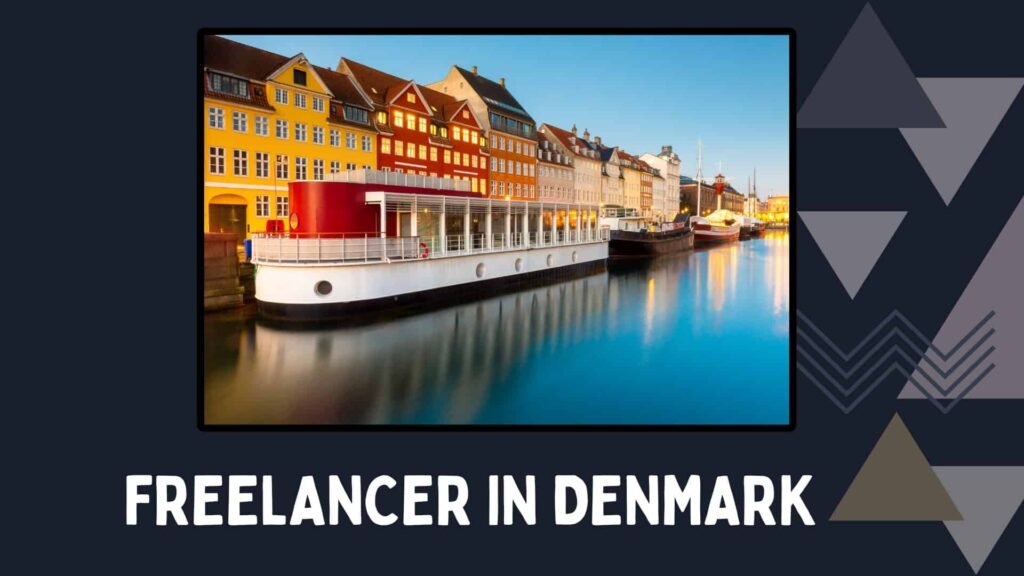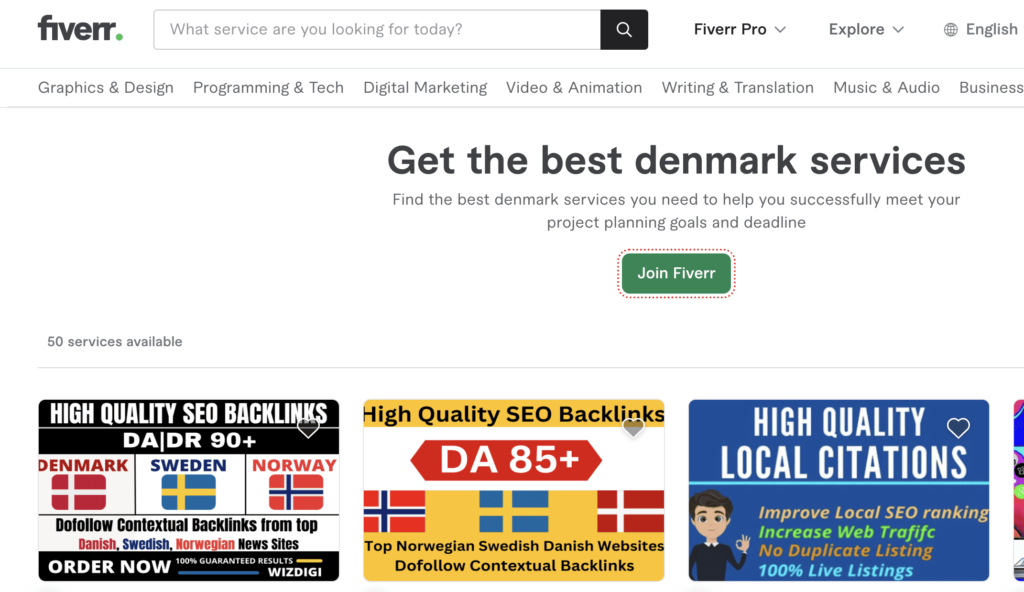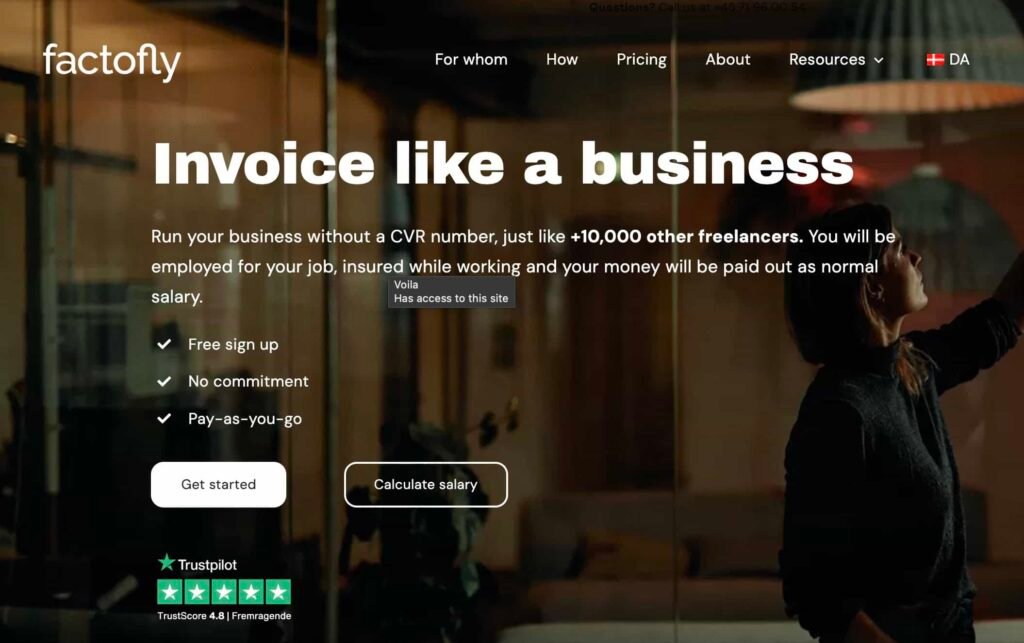To thrive as a freelancer in Denmark, get a work permit and register with key Danish authorities. It’s important to focus on finding good clients. Also, keep your finances in check and follow Danish tax laws closely. Networking, always learning new skills, and having competitive prices are crucial steps for success.
Freelancing in Denmark is great because the country’s economy is strong. There’s a high demand for certain skills. You can work when you want and choose the projects that interest you. More and more people are becoming freelancers in Denmark.
When you start freelancing in Denmark, you need to understand its legal and cultural rules. This means getting the right permits and registering your business. Knowing the tax system and picking the best business type is vital for your success as a freelancer.
Having a solid group of clients is key in the Danish freelance market. Put effort into networking and showing why you’re the best for the job. Make sure your work is top-notch to keep your clients happy. And don’t forget to manage your money well and handle taxes correctly.
Key Takeaways
- Obtain necessary work permits and register with the Danish Business Authority
- Build a strong client base through networking and quality service
- Manage finances efficiently and stay compliant with Danish tax regulations
- Choose the right business structure for your freelance work
- Continuously develop skills and adapt to market demands
- Embrace flexibility while maintaining a structured approach to work

Understanding the Danish Freelance Landscape
Denmark’s freelance market is booming, providing great chances for contractors. It’s important to know the legal side and cultural vibes of working in Denmark. This knowledge will help you navigate the Danish work environment better.
The Growing Freelance Market in Denmark
About 8.58% of Denmark’s workforce is self-employed. The gig economy makes up a big part of this, with over 30% being self-employed. Websites like Upwork and Fiverr are making it easier for contractors to find work.
Legal Requirements for Freelancers
Understanding Danish law is key for freelancers. If you’re an EU citizen, you can work as a freelancer without any specific visa. If you’re from outside the EU, the situation is a bit different.
You must get work permits, sign up with the Danish Business Authority, and follow tax rules. The cost for a Freelancer Visa is 6,380 DKK, and a Residence Permit is 7,035 DKK. Freelancers pay taxes from 8% to 56%, depending on how much they earn.
Cultural Aspects of Working in Denmark
Work-life balance, being on time, and clear talks are valued in Danish work culture. You’ll need to adjust to these expectations as a contractor. Denmark’s work policies are very progressive, thanks to the European Union. This benefits both workers and freelancers.
| Aspect | Employee | Independent Contractor |
| Work Control | Under employer’s direction | Greater autonomy |
| Income | Regular salary | Client invoicing |
| Benefits | Paid leave, job security | Flexibility, copyright ownership |
Knowing these differences will help you do well in Denmark, whether you’re on freelance platforms or working with clients directly.
Registering as a Freelancer in Denmark
To start as a freelancer in Denmark, you must understand the registration process. You need to legallly establish your business. This is important for freelancers and self-employed folks.
Work Permits and Visas
Before freelancing in Denmark, make sure you can work there. If you’re from the EU/EEA, you’re usually good to go. But, non-EU citizens need a work permit. The Danish Immigration Service can help you figure out what you need.
MitID and CPR Number
First, get a MitID digital signature and a CPR number. You need these for working with the public and businesses in Denmark.
Danish Business Authority Registration
Next, register your business with the Danish Business Authority to get a CVR number. You’ll use this number for invoices and communications. Learn more about CVR numbers here.
| Business Type | Annual Turnover | VAT Registration | CVR Number |
| PMV (Personally Owned Small Business) | Less than DKK 50,000 | Not required | Optional |
| Sole Proprietorship | More than DKK 50,000 | Required | Mandatory |
If your annual turnover is over DKK 50,000, you must register for VAT. Many freelancers choose sole proprietorship, which becomes more flexible as your business expands.
Registering as a freelancer in Denmark opens up a world of opportunities. It’s your gateway to the thriving Danish business ecosystem.
Follow these steps to become a freelancer in Denmark. You will be equipped to begin working in Denmark’s lively business environment.
Navigating the Danish Tax System
The Danish tax system can seem tricky for freelancers. They face progressive tax rates, with the highest reaching 52.07% in 2024. This money goes to SKAT, the tax agency in Denmark.
If you work freelance, you’ll pay income tax and maybe VAT, too. Register for VAT if you make over 50,000 DKK a year. But remember, VAT registration is not a must if you earn less.
Don’t forget about social security contributions. The AM-bidrag tax is around 8% of your full pay. This tax is for both workers and those who work for themselves.
| Tax Type | Rate | Notes |
| VAT | 25% | Mandatory if turnover exceeds 50,000 DKK |
| AM-bidrag | 8% | Applies to gross income |
| Top Marginal Tax Rate | 52.07% | Excludes certain taxes like labour market tax |
It’s key to keep good records of what you earn and spend. Make sure your invoices are correct, especially the VAT part if you’re registered. Save all these paperwork for seven years to follow the rules.
Understanding the Danish tax system is crucial for freelancers to thrive in this market. Proper planning and record-keeping can help you navigate the complexities and maximize your earnings.
Tools for financial management can make tax things easier. They keep you on track with what you owe. This helps you avoid troubles with the tax agency.
Setting Up Your Freelance Business Structure
When you start freelancing in Denmark, picking the right business structure is key. There are many options to choose from. Each comes with its own advantages and limitations.
Sole Proprietorship vs. Other Entities
Many freelancers in Denmark opt for a sole proprietorship. It’s easy to set up and run. You have total control and can decide fast. Keep in mind, you’re fully responsible for business debts and obligations.
Benefits and Limitations of a PMV
Coming under a Personally Owned Small Business (PMV) is great if you earn less than 50,000 DKK a year. You get to skip VAT registration, making your accounting simpler. But, you must remember the turnover cap and the importance of keeping proper records.
| Business Structure | VAT Registration | Turnover Limit | Personal Liability |
| Sole Proprietorship | Required if >50,000 DKK | None | Yes |
| PMV | Exempt | 50,000 DKK | Yes |
Alternatives for Invoicing and Administration
You might want to check out platforms like Factofly for smoother invoicing and admin work. They look after VAT accounting and tax filing. No more worries about turnover limits. It changes the game for freelancers who prefer working over dealing with paperwork.
Choosing the right business structure can make or break your freelance career. Take time to understand your options and pick what suits your needs best.
Freelancer in Denmark: Building a Strong Client Base
To succeed as a freelancer in Denmark, a strong client base is vital. Start by connecting with potential clients at industry events. Many Danish companies look for freelancers for specific jobs. So, make sure to show off what makes you unique.
Creating a professional brand and online presence is important. This will help you gain trust from clients. Provide excellent customer service and work hard to get repeat business and referrals. Always look to expand your skills to meet client demands and stand out.
Working at shared spaces like fleksplads can boost your contacts. From these spaces, you might find new projects to work on together. For instance, two great partnerships were born from shared workspace connections, showing their networking power.
- Join business hubs like Business Aarhus or Business Vejle for tailored advice
- Use the STAR method to showcase your work effectively
- Network on platforms like Upwork, Fiverr, or Shopify Experts
- Create valuable content on your website, blog, and social media
Effective communication is key. Using email, phone, or Slack is crucial for keeping clients happy. As a network engineer or graphic designer, your skills are important. Make sure to highlight what you can do to get and keep clients in Denmark’s busy freelance market.
| Networking Strategy | Benefits |
| Shared Workspaces | Improved time management, language development, sense of community |
| Business Hubs | Professional advice, clarity on resources, clear direction for progress |
| Online Platforms | Wide reach, diverse client base, project opportunities |
Managing Finances and Invoicing
Making it as a freelancer in Denmark means mastering money matters. We’ll cover key steps like creating compliant invoices, keeping track of expenses, plus using financial tools. All these will help your business run like a well-oiled machine.
Creating Compliant Invoices
Invoicing Danish clients means you must follow some rules. Each invoice needs to have:
- Your CVR number
- Client details
- Itemized services
- VAT information (if applicable)
For small sales below DKK 3,000, you can use simplified invoices. And remember, public sector clients in Denmark must get their invoices electronically.
Tracking Income and Expenses
Good record-keeping is key to financial success. It’s smart to keep your business and personal money apart. By law, you need to save your receipts for five years after you finish that year’s accounts.
Financial Management Tools
There are great tools out there to help with finances. They make invoicing and tracking expenses a breeze. You can also keep an eye on your cash flow, make financial reports, and get ready for taxes. Below is a list of some popular tools:
| Tool | Features | Price Range |
| Factofly | Invoicing, expense tracking, financial reporting | Flat 6% of each invoice before taxes |
| QuickBooks | Accounting, payroll, time tracking | $35-$235/month |
| Billy | Invoicing, VAT reporting, bank integration | 0 DKK-595*DKK/month |
Use these financial tips to get better at handling your freelance business’s money. Whether it’s invoicing, making international payments, or taxes and deductions, you’ll be prepared.
Maximizing Deductions and Tax Benefits
Understanding tax deductions is key for freelancers in Denmark. By knowing what can be deducted, you can lessen your tax burden. This means more money in your pocket. Let’s check out some important deductions for freelancers in Denmark.
One deduction is for your home office. If you use part of your home for work, you can deduct part of your rent and utility bills. This could save you DKK 3,700 to DKK 15,000 each year. Also, things like buying equipment or doing professional training can lower your taxes too.
If you have to travel for work, there are deductions you can claim. In 2024, it’s possible to deduct up to DKK 31,600 for travel costs. This big deduction can really help decrease your tax bill.
- Pension contributions: Deduct up to DKK 63,100 (2024) for both individual and employer payments
- Union memberships: Claim up to DKK 7,000 per year (2024)
- Charitable donations: Deduct up to DKK 18,300 annually
For freelancers who pay VAT, keeping good records is a must. This ensures you follow the law and get all the deductions you’re entitled to. Learn more about these benefits from PwC’s tax site.
An important bonus is the employment allowance. It’s 10.65% of your income, up to DKK 45,100 in 2024. Take full advantage of keeping track of your deductions. Doing this can lower your taxes and increase your take-home pay.
Conclusion and Future Predictions
In Denmark, 18% of cultural workers are in freelance jobs, showing a growing trend. This mirrors the situation across Europe, where freelancers make up 33% of the cultural workforce. Keep your eyes peeled for chances in creative industries and more.
The future for freelancers in Denmark looks bright. The government spends a good amount of money on jobs, creating a good environment for freelancers. Keep learning and stay flexible to keep up. Knowing the latest about job rules is key to doing well over time.
Freelancing in the Nordics is special, with extra chances and challenges. In cultural work, you’re much more likely to be your own boss. Remember not to overwork and aim for a good work-life balance. This way, you can truly enjoy being part of Denmark’s lively freelance scene.
FAQ
How does the language barrier affect freelancers in Denmark?
Language barriers can significantly impact freelancers in Denmark, as Danish is often required for effective collaboration, communication, and inclusion, even in companies with English as the official language. Freelancers may face challenges in finding suitable positions that match their language skills, and Danish clients may prefer to work with local freelancers who can communicate in Danish.
What are the networking events for freelancers in Denmark?
Denmark offers several networking events for freelancers, such as the Copenhagen Tech Freelance Community meetup group and the Entrepreneur Run 2024 event in Aarhus. Additionally, global freelance events like the Freelance Business Month in October 2024 are open to Danish freelancers. These events provide opportunities for freelancers to connect with potential clients, find support, and stay updated on industry trends.








